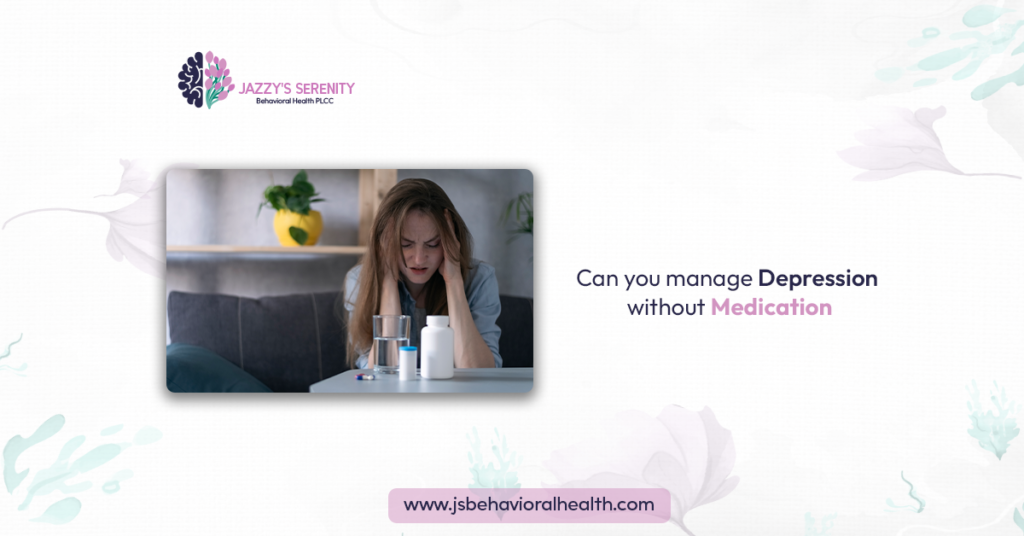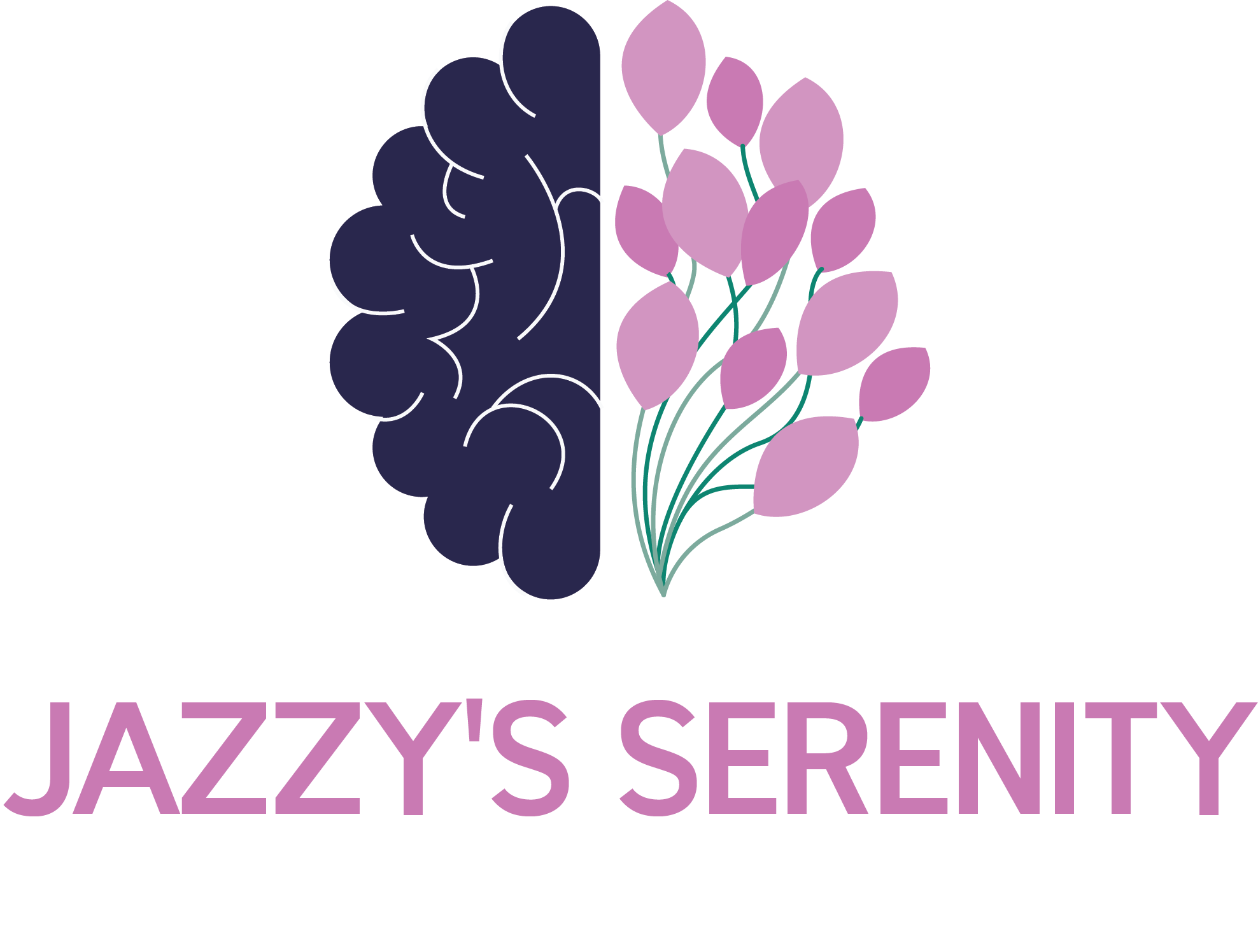Depression can be like a heavy fog in your life that reduces to lift.
For many, the thought of controlling it without medication brings hope but also raises questions.
Can you manage depression without medication? The truth is, it’s possible—but you must put in the work, dedicate yourself, and be open to trying alternative ways.
Not everyone may find medication suitable due to personal choices, side effects, or wanting to experiment with holistic options first.
Thankfully, there are tried and tested ways to lessen depression symptoms and take back your mental well-being using methods that don’t involve medication.
Let’s explore how these methods can work and if they could be a good option for you.
Depression Without Medication
The way depression shows up can vary by person. Certain people may notice depression due to changes in life, while others might face it because of genetic, biological, or surroundings-related factors.
Quite often, methods that don’t rely on medication can support other treatments or become the main aim.
This is specifically useful for those undecided about using antidepressants.
Depression in patients usually calls for a custom route, and methods that don’t use medicine can boost individuals to lead their mental wellness journey.
Can You Manage Depression Without Medication?
Yes, but it depends on the person.
For those with mild to moderate depression, treatments like therapy, shifting lifestyles, and attention methods can work wonders.
Non-Medication Strategies to Manage Depression
-
Counseling and Therapeutic Methods
They often hold the key to dealing with depression without drugs. Top-notch treatment options are:
- Cognitive Behavioral Therapy (CBT): Helps reframe your negative thought cycles.
- Talk Therapy: It lends an outlet to express emotions and spot triggers freely.
- Interpersonal Therapy (IPT): Works on enhancing your interpersonal relationships.
Therapy helps in healing depression for life by addressing its root causes and equipping you with coping mechanisms.
-
Exercise and Physical Activity
They not only enhance physical health but also are vital for mental health. Doing activities like taking a stroll, yoga, or jogging can:
- Surge endorphins (our body’s natural “feel-good” chemicals).
- Cut-down stress.
- Boost sleep quality, a significant part of mental health.
Physical activity offers a natural way to break free from depression and is an essential component of a wellness routine.
-
Diet and Nutrition
The food you consume is directly linked to your mental health. A balanced diet, filled with fruits, whole grains, lean proteins, and veggies, can enhance your mood and energy.
- Consuming Omega-3 fatty acids, found in flaxseeds, fish, and walnuts, does wonders for your brain.
- Limit sugary and processed foods as they could trigger energy slumps and heighten symptoms.
Even small diet adjustments can significantly aid in healing depression for life.
-
Building a Support System
Isolation can heighten depression. Being with upbeat, supportive individuals can make you feel part of something and appreciated.
- Engage in support groups.
- Count on loved ones and pals.
- Participate in local events.
A strong support network offers motivation and insight, critical for helping depression sufferers without meds.
-
Mindfulness and Relaxation Techniques
Paying attention to the present can keep you from feeling swamped. Techniques include:
- Meditation: Promotes rest and gets rid of negative thoughts.
- Deep breathing: Lowers tension and soothes the nervous system.
- Writing thoughts down: An exemplary method for dealing with emotions.
These ways are available aids for long-term depression relief and for fostering tranquility.
-
Setting Goals and Finding Purpose
Having clear goals and a life purpose can boost mental health.
Start with small, achievable tasks and slowly extend them. May it be a hobby, unpaid work, or career goals, purpose supplies the drive and hope.
When to Seek Professional Help
Despite the strength of these methods, they won’t suit everyone perfectly. Some of the more challenging depression cases might need therapy and meds blended.
Reach out to a mental health expert if:
- Symptoms stick or get worse.
- Daily life becomes too difficult to handle.
- Feelings of self-harm or despair become part of your thoughts.
Final Thoughts
Can you manage depression without medication? Yes, you can.
Non-medication approaches such as therapy, lifestyle tweaks, and forming solid support circles can make a massive difference.
Of course, it might take time and determination, but these approaches can help people break free from depression and make positive, enduring changes to their mental health.
Jazzy Serenity Behavioral Health PLLC is here if you need specialized assistance and advice to explore non-medication routes to mental well-being.
Our team is committed to providing the support and treatment you need.
Contact Jazzy Serenity Behavioral Health PLLC today.
FAQs
How can I treat depression myself?
Yes, by adjusting your lifestyle. Exercise regularly, eat healthily, practice mindfulness, and consider therapy.
Build a strong support network and emphasize self-care to notice a huge change.
Can you be depressed and not take medication?
Not always. Many with mild or moderate depression can handle it without drugs. Therapy, lifestyle modifications, and holistic remedies often work wonders.
Can I live a normal life with depression?
Certainly, by managing their symptoms with therapy, support network, and healthy behaviors, many individuals with depression live fulfilling lives.
The right strategies could restore stability and purpose.
Can depression get better without medication?
Yes, it could. Non-medical treatments like therapy, mindfulness, and lifestyle alterations help some people.
However, those with severe depression might need medical help.



No comment